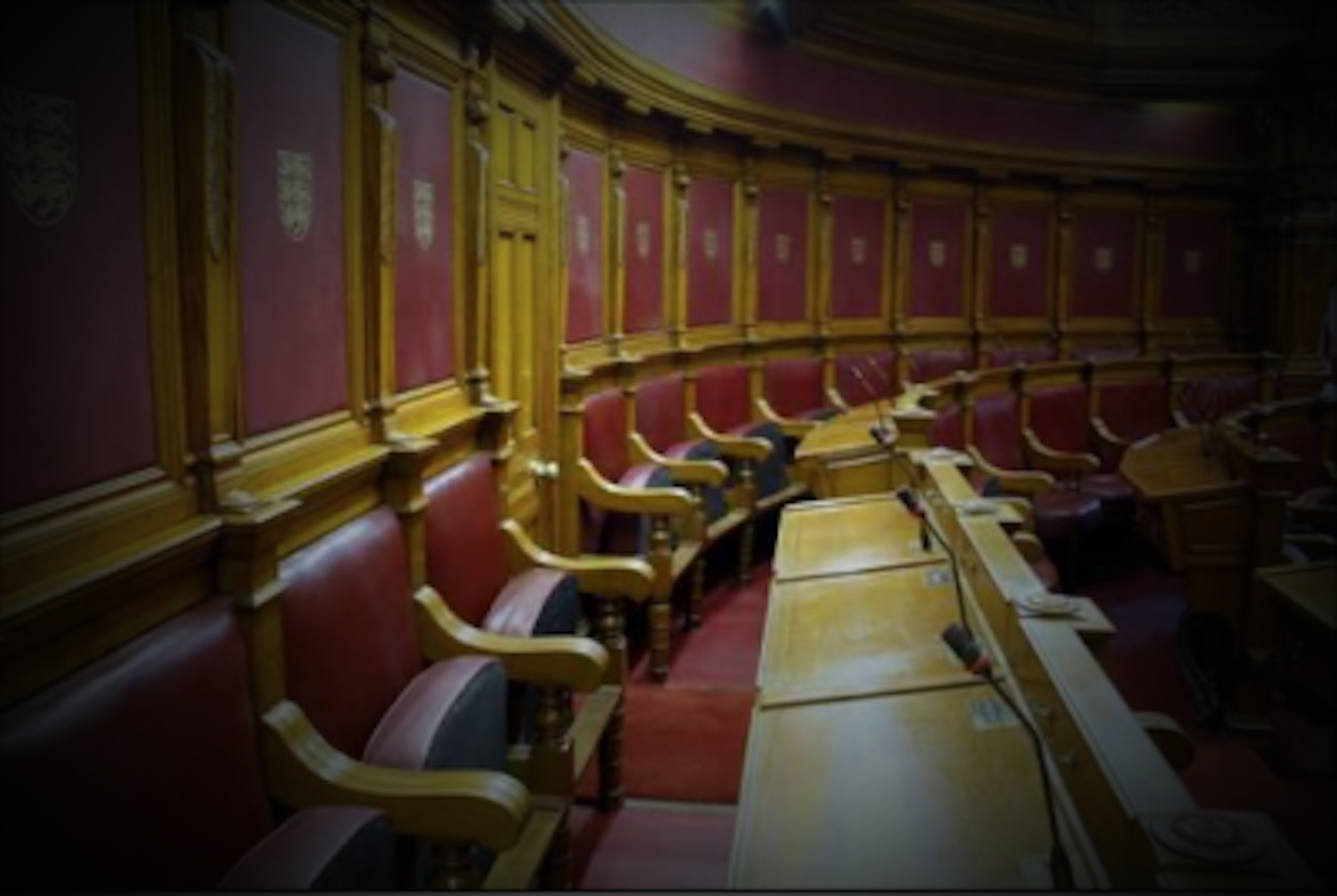

Ministers could become a single entity known as the ‘Government of Jersey’ under plans put forward by the Chief Minister – but a loophole could mean that this lets Ministers sign off on decisions for departments that are not their own.
The concerns were expressed yesterday by Deputy Simon Bree, Chairman of a panel tasked with reviewing proposals to overhaul the way Jersey is governed.
If agreed by the States Assembly, the plans would make it much easier for the Chief Minister to hire and fire ministers, abolish the rule forcing all ministers to vote the same way, and would give the new States CEO, Charlie Parker, overall responsibility for making sure taxpayers' money is spent "economically, efficiently and effectively."
The Panel had already described having “grave concerns” over too much power being given to the Chief Executive, who would effectively be able to probe organisations in receipt of as little as £1 of States funding, but yesterday’s grilling of the Chief Minister, Senator Ian Gorst, also saw them target his plans to turn Ministers into a single body.

Pictured: The proposed major shake-up to government is being brought by current Chief Minister, Senator Ian Gorst.
At present, each Minister is only legally responsible for their own department – the Health Minister represents the Health and Social Services Department, the Minister for Infrastructure can only give approval to Infrastructure matters, and so on. It also means that they could sue or be sued individually, rather than as a collective.
But the new plans would see them become an entity known as ‘Jersey Ministers’ or ‘Government of Jersey’ – a name referred to by Deputy Bree as a “phrase [that] has been creeping in over the years which has no legal basis.”
But the name wasn’t his only concern, but a lack of “checks and balances” that would stop Ministers and Assistant Minsters from signing off on documents for departments other than their own.
Defending the move, Community and Constitutional Affairs Chief Executive Tom Walker commented that such a system had been in place in the UK for at least 100 years without issue. “I’ve looked at the processes elsewhere… I’m confident that our processes are even more robust than their processes,” he said.
But Deputy Bree said that he was not convinced by comparisons with other jurisdictions.

Pictured: A similar system is already in place in the UK, the Panel heard.
Questioning also turned to the Chief Minister’s ability to be able to effectively ‘hire and fire’ Ministers. While the States Assembly elect Ministers at the beginning of their term, Senator Gorst’s plans would see the island’s next Chief Minister able to ‘reshuffle’ the Council if deemed appropriate.
But Panel member Deputy David Johnson queried the possibility that this could mean the next Chief Minister overturning the Assembly’s appointments “the following day.” Senator Gorst replied that he was considering bringing forward an amendment to his plans to build in “a time limit that would have to expire” before a Chief Minister would be able to do this. He added that any Chief Minister would likely be under threat of a vote of no confidence for doing so, which he noted that Panel member Constable Chris Taylor would not be afraid of doing, given that he had previously brought one against him.
Probed over his apparent “U-turn” on collective responsibility – the principle that binds Ministers into voting the same way, whether they agree or not – Senator Gorst said that he felt that it had “not achieved what it could have achieved in the way that ministers have worked together.”
“Rather than it enhancing the efficiency of government, many people feel it has been a barrier to openness… It’s certainly created a scenario where some have said, ‘I’ve only voted for it because I was bound by collective responsibility’,” he explained, adding that his decision to turn against the principle was based on the “benefit of experience.”

Pictured: Concerns were expressed that the moves could allow the Chief Minister to 'ignore' the Assembly's Ministerial election.
Justifying proposals to allow the Chief Executive to probe the finances of organisations that have States funding, regardless of how little, Senator Gorst explained that previously the States had focused on dividend as a measure of success in relation to entities where the States is the main shareholder, but that this wasn’t always a “good indication of value for money.”
He said that the States had previously come under fire for “just focusing on that shareholder function and not being able to give any comfort to the States about value for money”, adding that the Comptroller and Auditor General had mentioned this in numerous reports. “On the one hand you could say it’s radical… but I think there’s a good review trail about why we should be trying to do it.”
While draft legislation would mean that organisations gaining as little as £1 could be probed, Senator Gorst stated that it was not the intention to target these entities. Examples provided of those within the scope of the proposed measures included JT, Jersey Sport, VisitJersey, and the Jersey Overseas Aid Commission, but Senator Gorst said that he would prefer not to provide a full list on the basis that this would take a long time to compile and may include errors or omissions that later need to be rectified.
Regulators such as CICRA and the JFSC – both of which are independent of the States – could also face probing. Asked whether this would threaten their independence, Senator Gorst acknowledged that this would be, and already is, a “difficult area.”
He gave CICRA’s recent court case against ATF fuels, which was funded by taxpayers, as an example of where it had been a challenge to “find a mechanism there of ensuring that there was funding for this particular case without political involvement.” He said that the situation was resolved with a “work-around” following discussions with the Law Officer’s department to decide whether it was “an appropriate thing to do to provide them money and where that money was going to come from.”
“There has to be a better way,” he said.
Comments
Comments on this story express the views of the commentator only, not Bailiwick Publishing. We are unable to guarantee the accuracy of any of those comments.